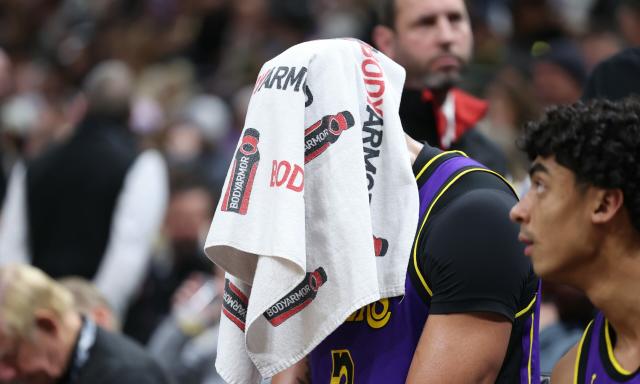The Utah Jazz were viewed by many as a possible seller before the NBA trade deadline in an effort to invest more in the future. A multitude of contenders could be drawn to their roster, which is full of assets that could accentuate their already alluring youthful core and draft stash.

But given that the squad has been playing well lately—which has helped them move up to ninth place in the Western Conference—it begs the issue of whether continuing in that vein is the best course of action. The Jazz are now just above a.500 record at 21-20 after winning 14 of their previous 18 games. This season, any hopes of tanking and bottoming out are now extinguished.
Instead of expecting another complete collapse, the Jazz have successfully refocused on how this squad can improve on the periphery. Some names that were previously available or on the market for Utah might be extra cautious about a possible sale since they don’t want to ruin their newly discovered chemistry.

Even though a seasoned trader like Danny Ainge is still likely to make a deal or two, it is tough to see some of their main players depart.
Having said that, the following three Jazz players shouldn’t be dealt in the upcoming weeks:
All Jazz fans should be aware of John Collins’ comeback during Utah’s most recent run. It appears he has taken the speculations about his being traded earlier in the season, when he was linked to a “lack of effort,” with stride.
His recent move to the starting center position has greatly increased the offensive team’s diversity and improved the team’s overall efficiency. He’s a terrific pick-and-roll option because of his exceptional rim-dribbling skills, and he can also lob the ball when necessary. Additionally, Collins’s ability to step outside and extend the floor has greatly increased the spacing in this apartment.

To put it plainly, he has been an essential component of this offense’s success over their current schedule of games. Collins has averaged 13.0 points, 6.5 rebounds, and 1.1 assists on 54.2/38.9/80.0 splits since making his injury comeback in mid-December.
It would seem more sensible for Collins to ride the wave and keep doing what has worked rather than putting his name on the trade market with his large contract, which is impossible to transfer as is.
Before the season began, Collin Sexton was thought to be a desirable trade asset that the Jazz would use, but their current success should silence those rumors. Now that he’s back to full health in Utah, the six-year NBA veteran may be having his greatest season yet.
As the team’s secondary option when it comes to making baskets, Sexton has been unrivaled in his energy since assuming his starting position. He has a 14-4 record and is averaging 21.5 points, 2.6 rebounds, and 4.8 assists in his 18 games played in the first five.

Having Sexton on board is essential if the Jazz are to advance in the Western Conference standings. Yes, you could trade him for a first-round choice or something comparable, but the enthusiasm he brings to the club on a very team-friendly contract is practically priceless.
It’s important for front offices to always have options, but it would take a compelling offer to convince Collin to leave Salt Lake City.
What a leap for Kris Dunn, the 2016 fifth-overall pick, from receiving DNPs to open the season in Utah to landing a nightly position as a starter. His ability to effectively defend the perimeter and assist has been a major contributor to the Jazz’s mid-season success.
The Jazz’s perimeter defense and lack of ball security were two of the biggest problems as the team faltered early in the season. The main thing stopping Utah from being successful on both ends of the court was turnovers, which in turn led to easy points in transition.

When Dunn arrives, those worries have begun to significantly improve. Even while Utah currently leads the league in turnovers per game, the team’s overall progress has given us reason for hope.
Since he’s been a nightly starter, the team has averaged 13.2 turnovers per game, an improvement from their rate of 15.4 on the season. The impact Dunn brings on both ends is probably unmatched in the trade market, so the Utah front office should be focusing on how to keep him in a Jazz uniform for the long run rather than trying to find a deal for him. The ball is moving better, the defense is playing more effectively, and we’re starting to see more positive games than negative when it comes to those giveaways.



